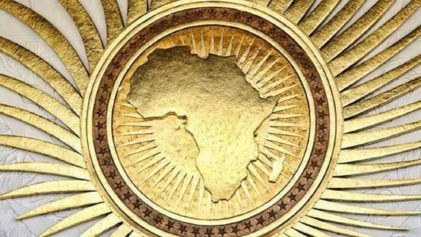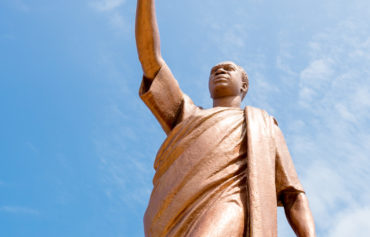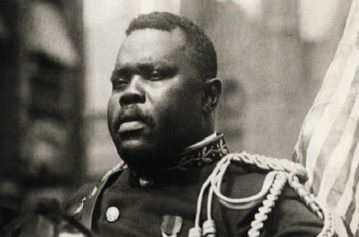On Wednesday, March 15, 2017, I had the pleasure of participating in a delegation organized by the Constituency for Africa (CFA), a leading education and advocacy organization in Washington D.C. This meeting was a continuation of CFA’s efforts to introduce the new African Union (AU) ambassador, H.E. Dr. Arikana Chihombori Quao, to key leaders. The meeting represented a cross-section of backgrounds and experiences consisting of leaders from the diaspora in the Washington D.C., area, with the exception of myself coming from Atlanta.
The Ambassador opened by welcoming everyone to the African Union’s D.C. headquarters and then gave a brief history of the AU, explained its predecessors and provided context for its beginnings. She paid homage to the late, great Nana Dr. Kwame Nkrumah for his leadership in unifying Ghana, Mali and Guinea through the Organization for African Unity. However, her praise of the AU did not come from a place of pride for pride’s sake. Chihombori admitted the past challenges and new vision for the AU and shared that reformation is coming. She shared that not only have leaders accepted criticisms, they have collectively reviewed their effectiveness through the African Peer Review (with no leader averaging a score of more than 20 percent). She proudly and unapologetically affirmed our need for solidarity as African people.
Referencing her background in health, Chihombori reaffirmed that Blacks/Africans as a whole are not represented in the global health sphere. To hear someone of her caliber speak so strongly on behalf of Africa was refreshing. The resounding fact that we need to lead the efforts on global health and sustainable community development on the continent means that we must recognize conventional organizations and NGOs do not intend to help Africa sustain herself. The ambassador’s words, conviction and understanding of Africa for the Africans was not only appreciated but motivated me to continue the work of connecting Blacks/Africans in the diaspora to African organizations.
When I received my invitation to participate, I was excited and could not wait to pose the burning question of,”‘How does the diaspora fit into the African Union’s strategy and mission to contribute to the further development of Africa?” As a member of the diaspora, I wondered how clearly the term “diaspora” was defined by the AU. Too often, this definition has various interpretations and with uncertainty of the AU simply emulating the European Union (EU), I wanted the AU to provide clarity on their mission “… to achieve greater unity and solidarity between African countries and Africans.” I wanted to know if “Africans” was limited to continental Africans or did it include all Africans across the diaspora? Those of us who were born in the U.S., Caribbean and South America by way of the trans-Atlantic/European enslavement trade — and recipients of the atrocities it inflicted on the nations and identities we were stripped from — typically do not hold much weight or have a major role in the conversations that shift policy related to the continent. So, I listened intently as she opened our discussion by defining the term “diaspora” and stressing the need for unity, especially as it relates to shedding the emotional, physical and psychological legacy of colonialism and enslavement.
When we talk about divestment from systems that are harmful, it is typically from a myopic level, but to address it as a call to action for the continent and to those of us in the diaspora that can assist as a unified front, is a declaration we must support. Major NGOs are implementing programs on the continent and across the diaspora that are not culturally competent, sensitive or desired by the communities they “serve.” Philanthropists and foundations throw money and wield power that shapes the infrastructure of educational and health systems in Africa and across the globe. When they fail, generations to come bear the brunt of these disruptions from those who claimed to represent our interests. The ambassador made a great note that if we honestly look at the impact of funding that the continent receives, remittance actually serves to provide more impact in communities than foreign aid. This reinforces the fact that as a people, we have all that we need.
Dr. Walter Rodney documented Europe’s role in underdeveloping Africa and we can see China’s recent investment on the continent has been detrimental to Africa’s competitiveness. As a unified front, we have the capacity to help our leaders lead and contribute to our own success. Leaning on the African proverb, “If you want to go fast, go alone; if you want to go far, go together!” let us go in mass numbers together in the spirit of umoja. Let us play our role so we can move forward ever. We are the most educated, talented, innovative people on the planet, we have everything we need except a unified front. Now is the time to set the flags aside and look to our shared bloodline; Africa for the Africans! The diaspora must recognize that culture is our immune system (as Nana Dr. Marimba Ani eloquently put it); we must be prepared to strengthen Africa with our energy, resources, talents and ideas.
I extend my gratitude and thanks to Melvin Foote, president of the CFA, and his unwavering commitment to unifying the diaspora; and to Ambassador Chihombori for her clear understanding of the diaspora and the U.S., something others before her have not been able to provide. After hearing her speak, I am confident that we received answers to some of our most important questions and how to move beyond discussions to action. I challenge other leaders and representatives to take up her stance on Africa so we can foster a greater sense of alignment and purpose that signals the diaspora is wanted and needed. I give thanks for her vision and to that of the AU for selecting such a dynamic and fitting representative. My organization is eager to work alongside her and we have extended an invitation for her to come to Atlanta and meet with the larger diasporic community. With Ambassador Chihombori Quao’s leadership, we are moving toward greater relations between the diaspora and Africa. I encourage leadership to begin grooming those of us ready to do the work to take over the reigns in the next five years so their legacy can continue.
—————————————————————————————————Raina Turner is an organizer with the annual upcoming Black Sustainability Summit and ULU. She also a marketing professional with seven years proven success as a digital marketing specialist and business development consultant focused on social good.


